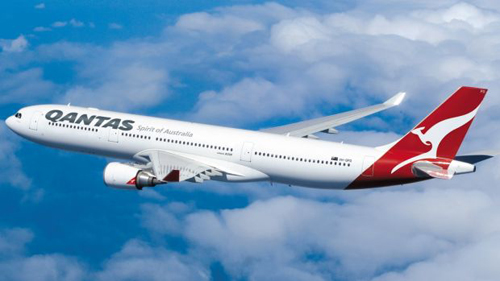Qantas will resume fights between Sydney and Beijing in January, more than seven years after it axed services to China's capital.
Qantas will resume fights between Sydney and Beijing in January, more than seven years after it axed services to China's capital.
The return to the route comes ahead of Virgin Australia's plans to launch services to Beijing and Shanghai next June. Australia's two largest airlines are eager to tap into opportunities in China, which is Australia's fastest-growing inbound travel market.
Qantas's resumption of direct services on January 25 using Airbus A330-200 aircraft is part of an expansion of its alliance with one of China's big three airlines, China Eastern.
As part of the deal, Qantas will codeshare on China Eastern's Sydney-Hangzhou, Sydney-Kunning and Brisbane-Shanghai services.
Qantas chief executive Alan Joyce said the flights to Beijing would help the airline take advantage of surging demand for travel between Australia and China.
"We're seeing strong loads on our existing Shanghai and Hong Kong services, and on this new Beijing route we'll have the advantage of China Eastern marketing the Qantas flight as part of their own network," he said.
"There are 21 million people in Beijing alone. The potential is tremendous."
The Sydney-Beijing flights will result in an 18 per cent increase in Qantas' capacity to greater China, which includes Hong Kong.
Qantas chief executive Alan Joyce at Sydney Airport on Thursday where he announced
the resumption of direct flights to Beijing.
In a sign of the demand from the region, about half of the international capacity of Qantas and budget offshoot Jetstar is now devoted to Asia, compared with 30 per cent a decade ago.
Chinese airlines have also been boosting flights significantly to Australia in recent years, including on routes from secondary cities in China. The country is Australia's second-biggest source of visitors after New Zealand.
Qantas will fly Airbus A330-200 aircraft on the Beijing-Sydney route.
Qantas and Virgin are pivoting towards the world's most populous country. Chinese companies HNA and Nanshan own a combined 40 per cent stake in Virgin after the airline tapped investors for $1.1 billion earlier this year. The pair have nominated two of their executives to join Virgin's board at the annual meeting next month.
Tourism Australia managing director John O'Sullivan said China was already delivering the country more than 1 million visitors and growth was forecast to remain strong. "I'm sure there will be no shortage of demand for the new service," he said.
Qantas's return to the Sydney-Beijing route is subject to regulatory approval. The airline has daily return services to Shanghai, and 28 a week to Hong Kong.

